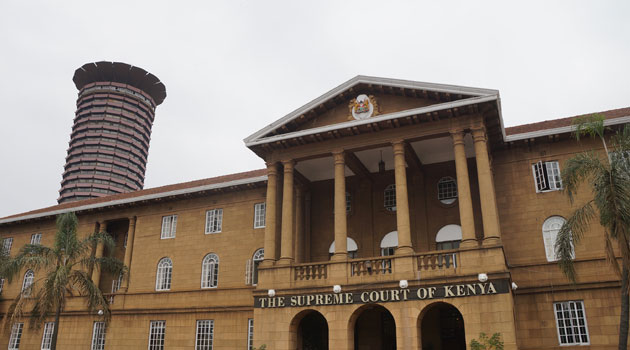
Treasury Cabinet Secretary Henry Rotich announced an allocation of Sh15.2 billion for the Judiciary down from Sh18 billion in the 2017/18 budgeT/FILE
NAIROBI, Kenya, Jul 24 – The Judicial Service Commission (JSC) is Tuesday set to address the nation on the implications of a Sh2.8 billion budget cut on its operations.
The news conference follows a drastic budget cut published on June 14 during the reading of the 2018/19 national budget when Treasury Cabinet Secretary Henry Rotich announced an allocation of Sh15.2 billion for the judiciary down from Sh18 billion in the 2017/18 budget.
Under the Sh3.07 trillion budget, the Ethics and Anti-Corruption Commission’s allocation was also significantly trimmed from Sh4 billion in the 2017/18 budget to 2.9 billion in the 2018/19 budget.
The Directorate of Public Prosecution (DPP) was among players in the Governance, Justice, Law, and Order (GJLO) sector whose allocations were enhanced, DPP receiving Sh2.9 billion up from Sh2.3 billion in 2017/18.
The Directorate of Criminal Investigations was allocated Sh6.9 billion with the Office of the Attorney General getting Sh5.1 billion.
The funding for the Financial Reporting Centre increased to Sh587 million up from Sh300 million in the 2017-2018 budget.
While reading the budget statement, CS Rotich said the GJLO sector’s funding had been increased to help effectively tackle corruption.
“These measures are aimed at strengthening multi-agency teams involved in the war against corruption,” said Rotich when he presented the budget in the National Assembly.
The reduced allocation for the Judiciary was however seen as detrimental to the delivery of justice by stakeholders in the sector with Chief Justice David Maraga having appealed for more funding when he released the State of the Judiciary and the Administration of Justice Report, (SOJAR) 2016-2017 on December 15, 2017.
“Indeed, in this financial year (2016/17), it (Judiciary funding/allocation) slipped to 0.99 per cent. This falls below the internationally recommended Judiciary Budget of 2.5 per cent of the national budget,” Maraga noted.
In the year under review however, the Judiciary had only absorbed 67 per cent of funds allocated to it. In the previous Financial Year, the Judiciary posted an absorption rate of 54 per cent.
In the period leading to the reading of the national budget, the Judiciary had justified the request for more funding with ongoing court modernization project.
Under the scheme, the Judiciary aims at introducing an electronic transcription system in court stations to expedite determination of matters.
The delayed adoption of the automated transcription system in election courts was for instance cited as the key impediment to the timely resolution of poll disputes by the Judiciary Committee on Elections (JCE) chaired by Justice Msagha Mbogholi.
“While it had been envisaged that election courts would be served by the transcription system, it did not work as envisaged. This meant that the gazetted election courts had to revert to hand writing of proceedings,” JCE noted in its Annual Report (2017) handed to the CJ on July 4.
The Judiciary is also working to establish a High Court in each of the 47 counties countrywide, in conformity with Section 12 (1) of the High Court Organization and Administration Act.
There are currently 39 High Court stations in 38 counties.
The Judiciary has 5,619 staff among them 158 judges, 421 magistrates, and 55 Kadhis.









































